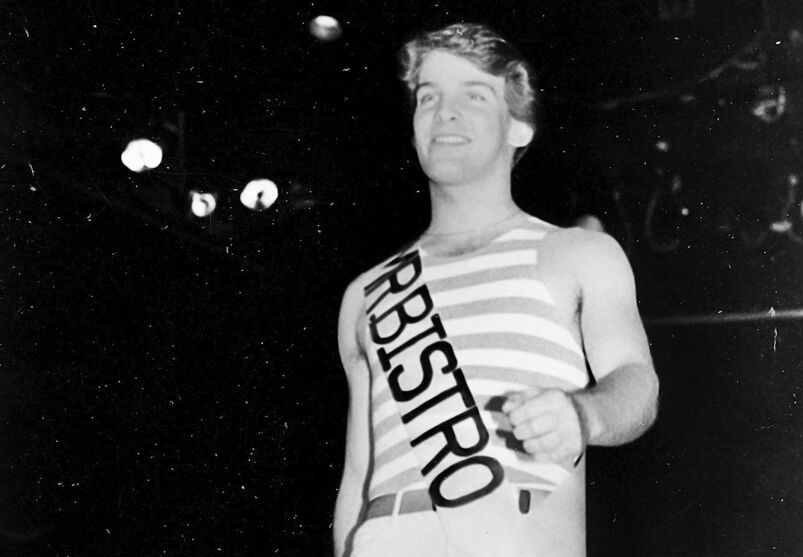
There are so many governmental and community programs that refer to “ending the HIV epidemic” that you might be excused for rolling your eyes a little when you hear about one.
What do they even mean? Ending the HIV epidemic how, you might wonder. And for whom?
Those questions are explored in very personal terms in a new documentary, HIV and the Journey Toward Zero. The documentary is produced by Tessa Films and, surprisingly, by the Chicago Department of Health and sponsored by The Reunion Project.
Note: The producers encourage you to host a screening of HIV and the Journey Toward Zero in your own community. It’s free: This link allows you to submit a request for it, and the Chicago Department of Health has even developed a handy screening guide to help you with your event.
“The drive behind producing this documentary came from multiple conversations with friends and colleagues who talked about what getting to zero meant for them,” said David Kern, Deputy Commissioner at the Chicago Health Department. “Ending the epidemic means very different things to different people.”
Officially, most cities define “ending the HIV epidemic” as there being no new HIV transmissions and everyone living with HIV having access to effective treatment. Considering the setbacks public health agencies experienced during the COVID pandemic, that feels like a tall order.
On the faces of the long-term survivors profiled in HIV and the Journey Towards Zero, the epidemic coming to an end means something else entirely. “If I am still living with HIV, the epidemic isn’t over,” one survivor says. “Until there is a cure, the epidemic isn’t over.”
In fact, the documentary really leans into the journey of HIV, knowing, wisely, that we can’t speak about ending something without exploring what the hell happened to us and to our community in the first place. Director Chan C. Smith drills deep into the survivors’ origin stories, including a man who arrived in Chicago as an adorable blond dance club DJ, a trans woman experiencing early transition, and a heterosexual blood drive volunteer who found herself on the receiving end of a terrifying “please come in to discuss your blood donation” letter.
The documentary is only Part I, according to producers. “Part II will focus on the legacy of these survivors,” said David Kern. “We’ll look at younger people who have been diagnosed more recently, or who are using PrEP. Finally, Part III will bring all of these voices together for an intergenerational dialogue.”
That should be interesting. One of the most emotional moments of the documentary, in fact, is a scene late in the film between the survivors and younger people who have taken an interest in the lives of these remarkably resilient people. “You are our legacy,” one of the survivors says, pointing in their direction.
The end of the HIV epidemic is far more than a public health goal, as any HIV survivor will tell you. Many of us have been here since the years just before. Before the dying and the terror and the stigma and the hatred.
I remember those years. I also want to be here for the years that come just after.
Mark S. King writes the blog My Fabulous Disease, which won the 2020 GLAAD Media Award.





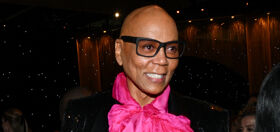
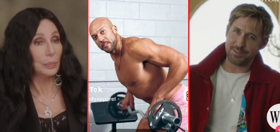




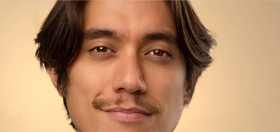


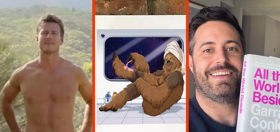

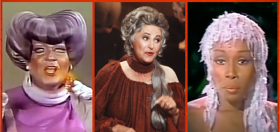

dbmcvey
It’s always hard for me to go back and watch these things. I think I still have PTSD from that era, but, I’m always glad I did watch them. I’m glad we’re talking about these times, for a long time we were silent and that was wrong.
xandro
I just can not imagine what you have gone through. I was a gay teen in the late 80s early 90s and actually had a relative die during the HIV/AIDS crisis and found out he was gay as a result. He was never mentioned again by my family which made me realize I needed to wait to come out. Sorry if I am posting nonsense. Just what you posted kind of struck a cord with me if that makes sense.
dbmcvey
Not nonsense at all xandro.
Paulie P
I was 18 in 1983. I went to a gay bar on Boylston Street in Boston for the first time, alone. Standing waiting to get in, a worker ran up to the booth and said to his friends look what I bought. We can all get AIDS.
In his hand was a box of AYDS appetite suppressant. They all laughed. I was appalled I stood there frozen. People were dying and these immature idiots were making fun.
I have often thought how many of them at 57 are here today.
Chrisk
The fact that they could find humor and not even good humor in a an absolute horror show happening around them makes me believe Karma caught up to them. I’ve never in my life found humor in shit like that.